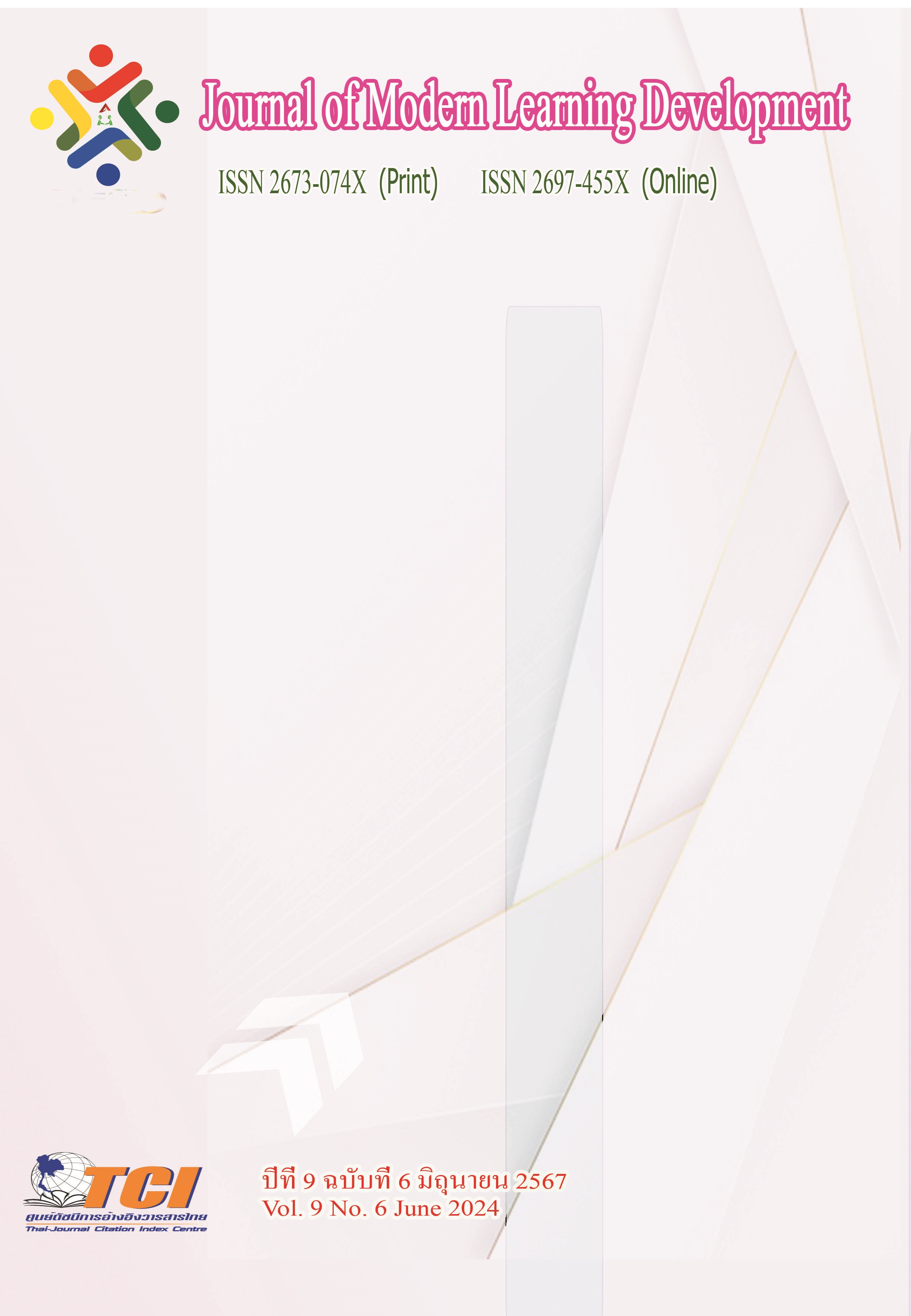Buddhist Leadership According to the Principles of Good Governance
Main Article Content
Abstract
This academic article aims to study ethical leadership according to the principles of good governance. Which consists of the rule of law, the principle of morality, and the principle of transparency. Participation principles Principles of Responsibility and the principle of value Today's leaders must know how to adapt in management. that will help solve corruption problems Solving social conflicts which has Buddhist leadership Leaders must be dharma-based, knowledgeable, capable, and honest. Be selfless, not biased, and work according to the principles of the law. Focus on developing morality and ethics and principles of good governance for living together happily Therefore, the principles of good governance Therefore, it is an important guideline for organizing society in both the government, private and public sectors. To have management principles that are efficient, moral, and transparent. Can be checked and participation of all s ectors By applying Buddhist principles which will bring further progress, peace, and stability of the country.
Article Details
References
กมล รักสวน. (2532). ภาวะผู้นำ. เชียงใหม่: วิทยาลัยครูเชียงใหม่
คณิน บุญสุวรรณ. (2544). การเข้าถึงธรรมมาภิบาลตามแนวทางของรัฐธรรมนูญแห่งราชอาณาจักรไทย
ชาญชัย อาจินสมาจารย์. (2543). ทักษะภาวะผู้นำ. กรุงเทพมหานคร: มัลติดิพเฟอร์เมชั่นเทคโนโลนี
ธีรยุทธ บุญมี. (2541). ธรรมรัฐแห่งชาติยุทธศาสตร์กู้หายนะประเทศไทย. กรุงเทพมหานคร: สำนักพิมพ์สายธาร
บุษบง ชัยเจริญวัฒนะ และบุญมี ลี้. (2541). ตัวชี้วัดธรรมาภิบาล. กรุงเทพมหานคร: สถาบันพระปกเกล้า.
เปรม ติณสูลานนท์. (2548). จริยธรรมการบริหารภาครัฐ. มติชน.
พจนานุกรมฉบับราชบัณฑิตยสถาน พ.ศ.2542. (2546). กรุงเทพมหานคร: นามมีบุ๊คพับลิเคชั่นส์
พระธรรมปิฎก (ประยุทธ์ ปยุตฺโต). (2540). ภาวะผู้นำความสำคัญต่อการพัฒนาคน พัฒนาประเทศ, กรุงเทพมหานคร: ธรรมสภา
พระราชญาณวิสิฐ (เสริมชัย ชยมงฺคโล). (2548). หลักธรรมมาภิบาลและประมุขศิลป์. กรุงเทพมหานคร: สำนักพิมพ์ชัยมงคลพริ้นติ้ง
สถาบันพระปกเกล้า. (2546). ตัวชี้วัดธรรมาภิบาล. (พิมพ์ครั้งที่ 2). กรุงเทพมหานคร: โรงพิมพ์คุรุสภา ลาดพร้าว
สุดจิต นิมิตกุล. 2543. กระทรวงมหาดไทยกับการบริหารจัดการที่ดี ในการปกครองที่ดี (Good Governance). กรุงเทพมหานคร: บพิธการพิมพ์
อานันท์ ปันยารชุน. (2542). มุมมองนายอนันท์. มติชน
อำนาจ ยอดทอง. (2557). บทวิเคราะห์ว่าด้วยธรรมาภิบาลในพระพุทธศาสนา. เอกสารการประชุมวิชาการระดับชาติ มจร ครั้งที่ 1 เล่ม 2 (Book of Abstracts and MCU Congress Proceedings). กรุงเทพมหานคร: โรงพิมพ์มหาจุฬาลงกรณ์ราชวิทยาลัย
Hemphill, J. K. and Coons, A. E.. (1957). “Development of the Leader Behavior Description Questionnaire,” Stodgill, R. M., and Coons, A. E. (Eds.), Leader Behavior: Its Description and Measurement. (Bureau of Business Research, Ohio State University. Columbus
Stogdill, R. M.. (1974). Personal Factors Associated with Leadership: A Survey of the Literature. Journal of Psychology
Koontz, Harold, Cyril O’Donnell. and Heinz Weihrich. (1982). Essentials of Management. (3rd ed.) (New Delhi: TATA McGraw-Hill


